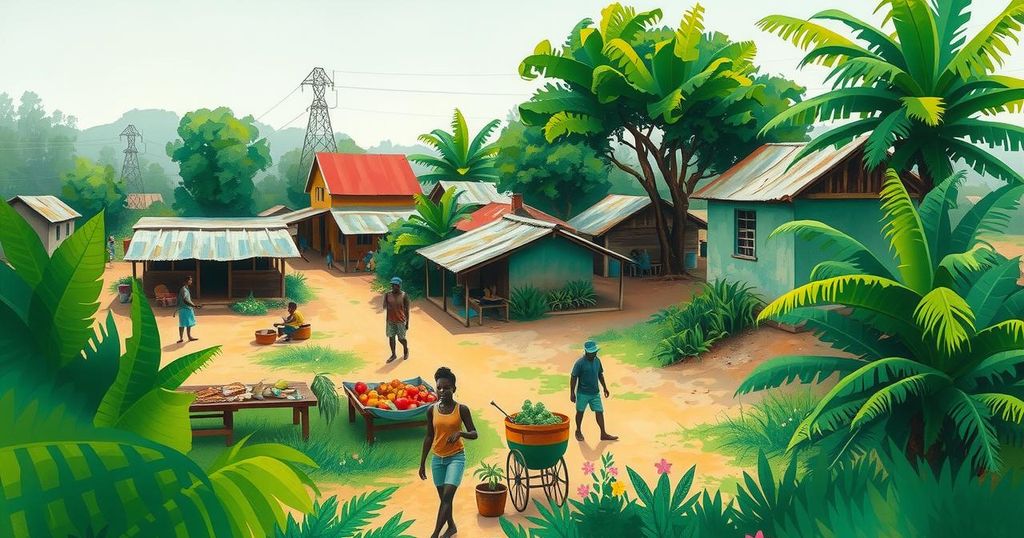Business
economics
AFRICA, AFRICAN UNION, ASIA, AU, CENTER FOR DEMOCRATIC GOVERNANCE, ECONOMIC COMMUNITY OF WEST AFRICAN STATES, ECONOMIC DEVELOPMENT, ECONOMY, ELKANAH Y. TAYLOR, EUROPE/ASIA, INDIA, INFLATION, INFRASTRUCTURE DEVELOPMENT, LIBERIA, MONROVIA, PATIENCE M. JONES, RUSSIA, TAYLOR, TRINITY AUDIO
Jamal Walker
0 Comments
Insights from the Afrobarometer Round 10 Survey on Liberia’s Socio-Economic Landscape
The Afrobarometer Round 10 survey highlights the views of Liberians on critical issues such as governance, economic conditions, migration, climate change, and women’s rights. Findings reveal a divide in public opinion regarding Liberia’s direction, with strong preferences for democracy and climate action. A significant portion of the population contemplates migration due to economic motivations, emphasizing the urgency for responsive policy solutions.
On March 13, 2025, the Center for Democratic Governance hosted a critical conference at the Corina Hotel in Monrovia, focusing on the Afrobarometer Round 10 survey findings. This survey explores issues such as climate change, economic conditions, migration, and international relations, reflecting Liberians’ perspectives on their future. Presenters, including Mr. Elkanah Y. Taylor, emphasized the importance of understanding these perspectives to facilitate meaningful discourse among partners and donors.
The survey revealed a division in public opinion about Liberia’s direction, with 50% of citizens believing the nation is on the right path, while an equivalent percentage disagreed. Economic assessments were similarly split; 48% view conditions negatively, whereas 45% possess a favorable outlook. These sentiments were mirrored in living conditions, with 46% expressing dissatisfaction, yet 61% remain optimistic about economic improvement within the next year.
A notable finding is the strong support for democratic governance, with a significant majority rejecting authoritarianism. The survey reported that 79% of local councilors and 88% of parliamentary members are viewed as disengaged from the public. Moreover, 66% of respondents feel that officials who commit crimes face little to no repercussions, and 58% highlight concerns regarding political interference in judicial processes.
In examining external influences on Liberia’s economy, the survey noted that 68% of Liberians recognize China’s substantial impact. Conversely, 86% have favorable views of American influence, while 79% and 58% view China and India positively, respectively. A lesser 39% extend similar favor towards Russia. Additionally, over three-quarters appreciate the contributions of the Economic Community of West African States (ECOWAS) and the African Union (AU) in national governance, emphasizing diplomatic neutrality concerning the ongoing Russia-Ukraine conflict.
The survey also addressed climate change awareness, revealing that 68% of Liberians acknowledge the issue’s existence, with 71% believing it worsens living conditions. A consensus of 82% insists on government and wealthy nations taking action. There is robust support, with 81% endorsing investments in renewable energy among other initiatives to combat environmental concerns.
On matters of women’s rights and health autonomy, 78% of participants advocate for women’s choices regarding marriage and childbearing, and 77% support education continuity for pregnant girls. Additionally, 61% of respondents deem abortion permissible under specific circumstances, including health risks to the mother and pregnancies resulting from rape.
Migration is a significant concern, evidenced by 77% of participants contemplating leaving Liberia, predominantly among the educated and employed. Economic opportunities drive these considerations, with North America being the preferred destination for 52% of those considering emigration.
The Afrobarometer Round 10 survey provides crucial insights into Liberia’s socio-economic landscape, revealing a divided public opinion on national progress and economic conditions. Moreover, the desire for democratic governance, climate change action, women’s rights, and the pressing concerns of migration underscore the necessity for responsive policies. By addressing these varied concerns, Liberia can work towards fostering a more inclusive and prosperous future.
Original Source: frontpageafricaonline.com




Post Comment